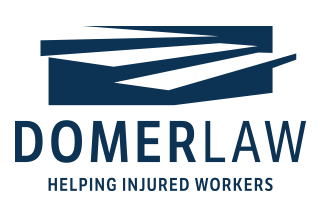Workers’ compensation is the sole remedy available to those individuals that suffer an injury or illness while on the job under Wisconsin law. This is confusing to many people, who do not understand what happens in these types of work-related situations. Based on a number of reasons (ranging from TV advertising to bar-room discussions), an injured worker may feel that they will be able to recover large sums of money when they suffer a workplace injury or illness, and they are surprised to learn that there are limitations on the amount of compensation that may be awarded.
Simply put, an injured work can’t sue her employer. The workers’ compensation system was developed in order to minimize the risks for both employers and employees when a workplace injury or illness occurs. As part of the “grand bargain” of workers’ compensation (first established in 1911 in Wisconsin), workers gave up the right to bring civil lawsuits against employers in exchange for a no-fault administrative system of more certain, but lesser, benefits.
The system prevents workers from needing to prove the employer was at fault for the incident. Even if the accident was the fault of the employee, the person would still be eligible for benefits. Thus, the focus in workers’ compensation is more simply whether an injury occurred in the course and scope of employment-not who is to “blame” for the injury. This is a concept that can be difficult for a recently-injured worker who is extremely upset over the circumstances of an injury.
Workers’ compensation provides defined benefits. Workers can expect to receive benefits to cover the expenses associated with their medical care, as well as for any missed time from work (at 2/3 of their wages.) There is also the possibility of a doctor-assigned percentage of disability to the body part affected and, if unable to return to work with limitations, vocational retraining or loss of earning capacity claims.
There is no compensation for the loss of health insurance or health insurance premiums. There is no compensation for the loss of 401(k) contributions or lost future overtime pay. There is no benefit for loss of consortium (which means the injury has impacted their relationship that they are able to share with their families). Most importantly, unlike personal injury cases, the workers are not able to recover any damages for pain and suffering.
Workers’ compensation is different from a personal injury case, such as an automobile accident. In those cases, the person’s ability to recover will depend upon who was at fault. If a motorist caused the crash, it is possible that he or she will not be eligible to recover any compensation to help deal with any of the expenses that they received.
An injured worker, however, can have both a workers’ compensation claim and a personal injury claim if the injury was caused due to the acts of a third-party not connected to the time-of-injury employer. For example, if a worker was driving as part of his job and was struck by another motorist (who is not a co-worker), the injured driver has a possible personal injury claim against the motorist for the injuries sustained. Such third-party personal injury claims carry the possibility of greater benefits to the injured worker.
If the accident or condition was caused due t o the employer ignoring safety protocols, the workers’ compensation system still applies. Workers may receive a small increase in benefits as a penalty against the employer for placing them at risk.
You may have a lot of questions, and it is important that you know what to expect when you file your claim for benefits. If you have suffered an injury or illness while working in Wisconsin, you need to discuss your situation with an experienced workers’ compensation attorney. Your attorney can walk you through the entire process, and help you obtain the benefits that you need while you are out of work.


